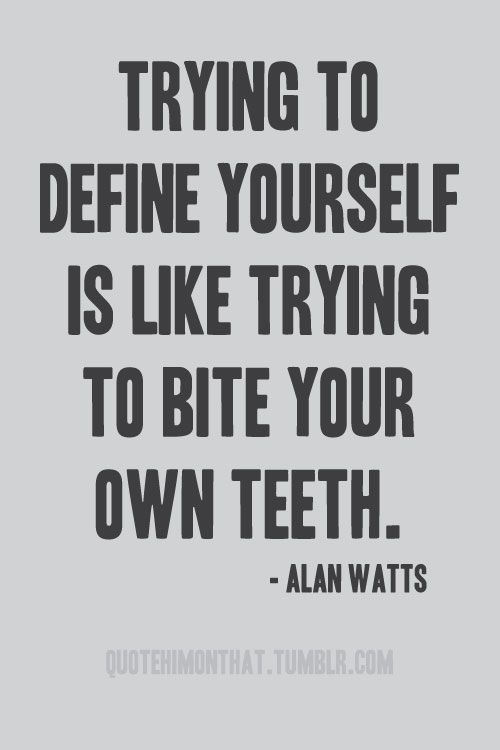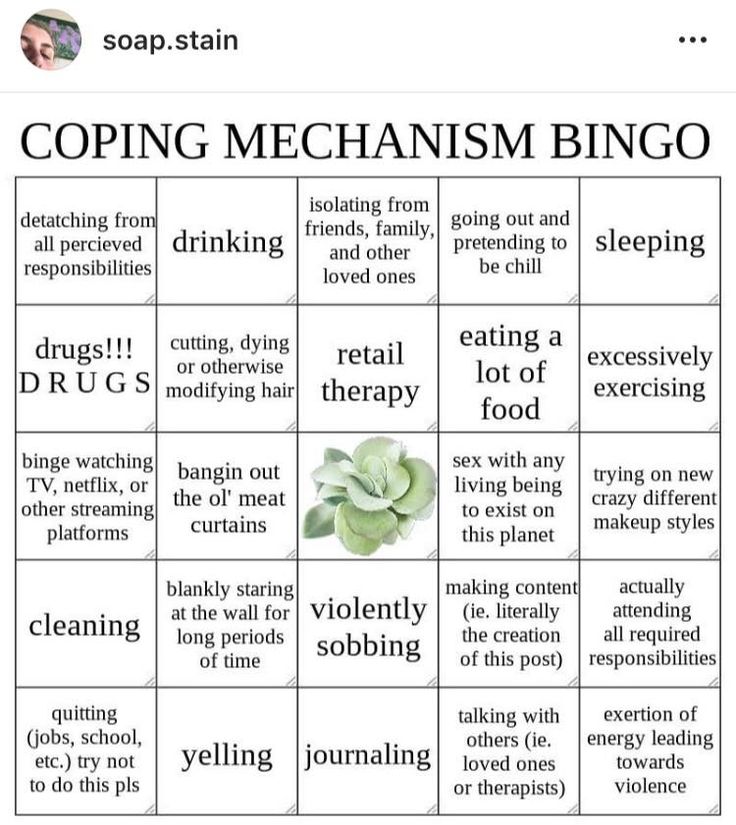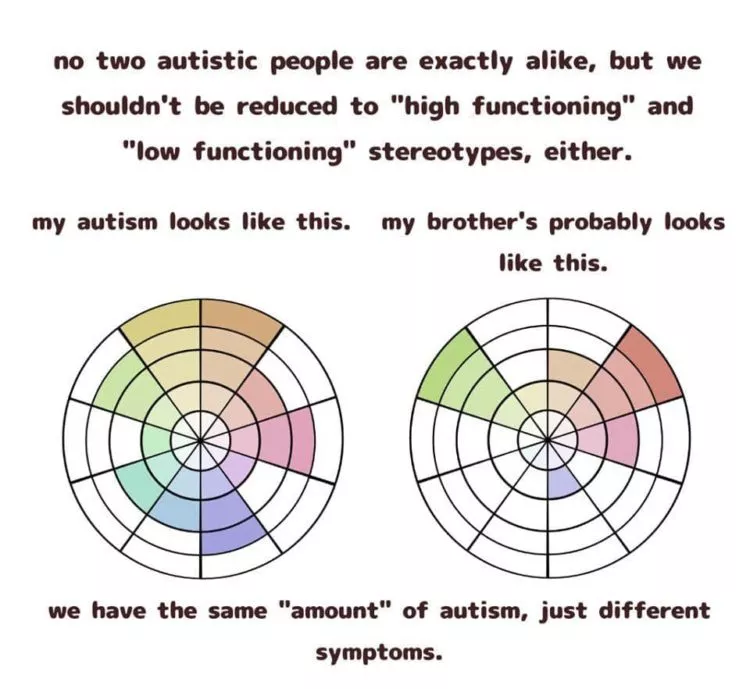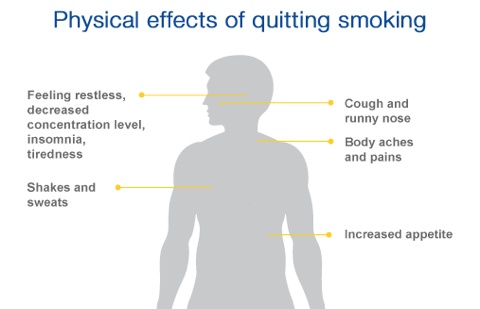Narcissistic borderline dance
The “dance” between two personality disorders: a delicate relationship balance
Picture by Martina Lofrinch
Psychologists believe we often choose our partner because we think (s)he has characteristics that could balance and complete ours. We need to make them play a certain role, a function of responding to our most intimate needs. Most times, this is also the role our partner needs to play. According to Monguzzi, beside the previous reasons, we also choose a partner in order to give up on some of our qualities, which are then attributed to the partner. Something like this can happen in those suffering from personality disorders: two people (with different, almost opposite disorders) can feel attracted because of their contrasting characteristics, in a sort of dance balanced by the complementarity of dispositions and roles.
According to Monguzzi, when forming a couple, we expect the partner to govern our psychological conflicts, to protect us from them. The chosen lover represents the hope to understand and deal with parts of self that we refused and try to integrate.
In couples of people who suffer from personality disorders, it’s important to remember the disorders are structured and long-lasting ways of thinking and acting, related to genetics, temperament and experiences. They aren’t just traits, they are rigid configurations that revolve around typical inflexible behavior patterns, beliefs, attitudes and expectations, which are constant and hardly modifiable. For example, while an obsessive trait can be adaptive (being a perfectionist can lead to be productive at work), an obsessive-compulsive disorder compromises the sufferer’s functioning in different, so that his life becomes too bonded to certain recurring beliefs and patterns.
While the PDM (Psychodynamic Diagnostic Manual, 2006) identifies 15 personality types (each having different levels of severity), the DSM V (Diagnostic and Statistical Manual of Mental Disorders, APA 2013) organizes 10 disorders in 3 clusters. In the first cluster we can find disorders with odd characteristics, in the second disorders with dramatic characteristics and in the third disorders with anxious characteristics.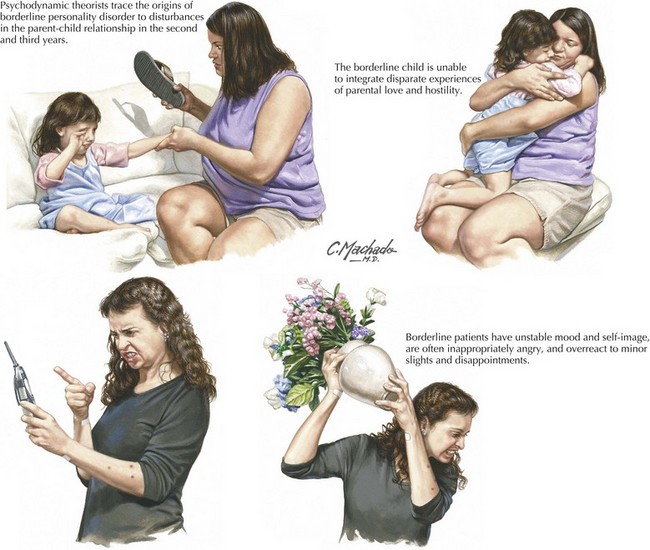
Someone suffering from a personality disorder could feel attraction towards someone with an opposite and complementary personality structure. Scientific literature hasn’t investigated this topic much, but lots of clinicians found it regularly, especially in these three dyads: obsessive-compulsive with histrionic, narcissistic with dependent and narcissistic with borderline.
The most important characteristics of these disorders are the following:
- The obsessive-compulsive person is characterized by need to control, perfectionism and emotional inibition;
- The histrionic individual is seductive and has an excessive and drammatic affectivity;
- The narcissist shows lack of empaty, grandiosity and arrogant attitude;
- The dependent person is unable to make decisions without the other person and can’t be without him/her;
- The borderline fears abandonment, is emotionally unstable, experiences feelings of emptiness and rage and is often impulsive.
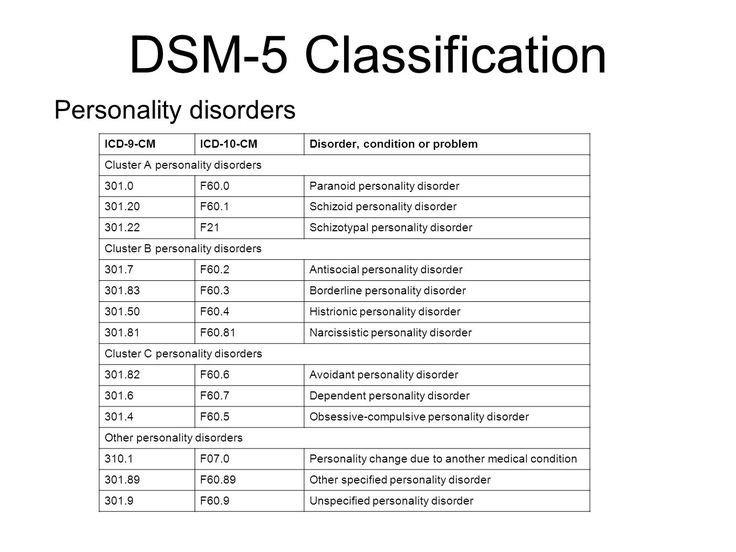
Kaslow says that in 30 years of clinical activity he found lots of stoic and meticulous obsessive-compulsive people attracted to chaotic and bubbly histrionics. Or self-absorbed and self-centered narcissists in a relationship with a needy dependent person.
The psychologist says that, in these cases, the partners are so complementary that, after a divorce, they would probably be in new couples with people that match the previous partners’ characteristics.
Solomon noticed that, even if only one of the partners suffers from a personality disorder, the other will show opposite personality tendencies. So the partner who has not a disorder still shows characteristics that complement the other person with rigid and disturbed personality. As we can imagine, this will probably amplify – not reduce – the pathological characteristics of the partner who has the personality disorder (as can be seen in sadomasochistic dyads, in which each role reinforces the other).
Concerning the OCD-histrionic disorder dyad, Kaslow explains that is likely for a histrionic woman to be attracted by a perfectionist partner with OCD, because she feels the need to be more stable, while he is probably attracted by her eagerness to care.
Carlson talks about a “private pact”, which can be summarized as: “I can’t do it alone in life, but if I find someone who makes up for my failings, maybe we can function together as a complete and adequate person”. According to the author, a histrionic woman, who is frequently at the mercy of her emotional shifts, looks for a man who has a clear, logical thinking and strong coping abilities. At the same time, the obsessive man is attracted by her generosity, her capability to just let go and have fun (which this man finds hard because he is too focused on his sense of duty).
Picture by Martina Lofrinch
However, this match doesn’t last long. After a while, one of the partners will feel threatened and will become defensive; the partner’s once fascinating qualities will be seen negatively. The histrionic woman won’t see him anymore as stable, trustworthy and organized, but as weak, cowardly, domineering and inflexible. The obsessive man won’t see her anymore as a free spirit, but as a frivolous, carefree and reckless spendthrift. Trust begins to shake. She wants him to show emotional reactions, so she will try to provoke him, but showing affection is not natural for an obsessive man. Consequently, she will assume he doesn’t care about her and she will experience feelings of failure and abandonment. She could attack him verbally, cheat on him or even try to commit suicide. His reactions to this climax will probably be passive-aggressive: he will shut down emotionally, while feeling an inexpressible anger at the same time. He will start to feel unloved too, believing his partner only stays in the relationship because of his money or because she is afraid to leave him.
Trust begins to shake. She wants him to show emotional reactions, so she will try to provoke him, but showing affection is not natural for an obsessive man. Consequently, she will assume he doesn’t care about her and she will experience feelings of failure and abandonment. She could attack him verbally, cheat on him or even try to commit suicide. His reactions to this climax will probably be passive-aggressive: he will shut down emotionally, while feeling an inexpressible anger at the same time. He will start to feel unloved too, believing his partner only stays in the relationship because of his money or because she is afraid to leave him.
This description by Sperry and Maniacci (1998) is incredibly reminding of the movie “Eternal sunshine of the spotless mind” (2004). She is affectionate, exuberant and impulsive, while he is inhibited, rigid and hermetic. After the initial idyll, an escalation of misunderstandings, fractures, revenge and recrimination happens. As predicted by the aforementioned Kaswlow, the two will look for each other again, despite the pain and the disappointments, because the other is a desirable and irresistible magnetic pole, capable of completing their neuroses.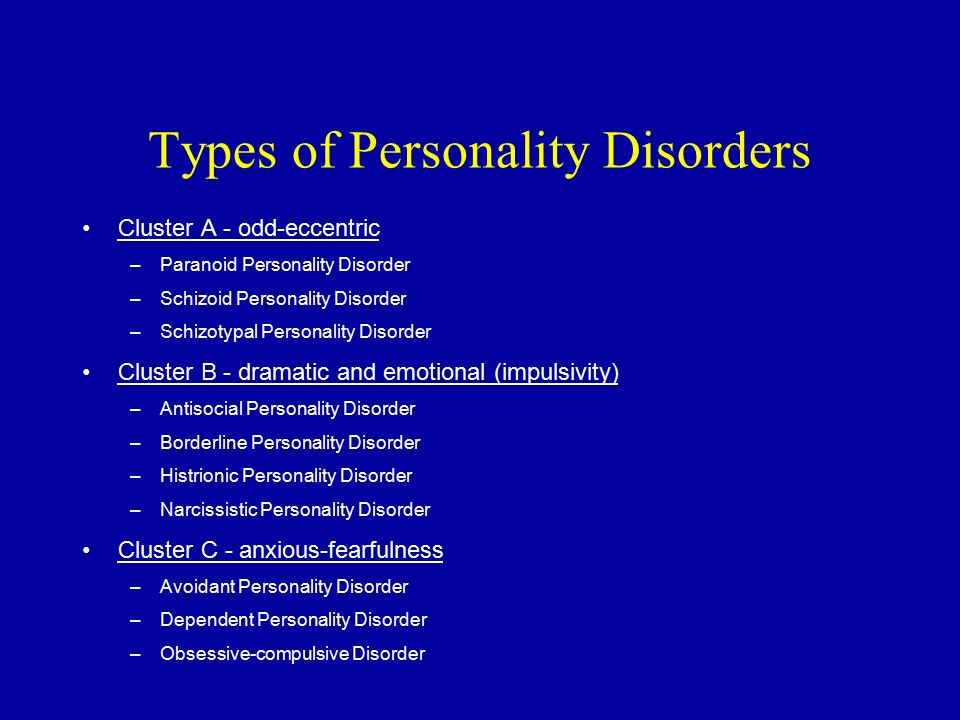
In the dependent-narcissist couple, the dependent woman is usually remissive and feels inadequate, so she looks for someone to subordinate to, who will reassure her, complete her and fill the void she feels.
The narcissistic man, whose grandiosity and arrogant attitude usually hides a deep insecurity, uses other people to confirm his value and needs someone who doesn’t challenge him. Millon says narcissists choose partners who are reverent, considerate and condescending. Dependants, on the other hand, can make their partner feel important, strong and competent. Who is actually more dependent: the dependent or the narcissist?
Kaslow explains that, though people are initially attracted to what feels like their other half, this “half” actually reflects qualities they judge negatively or refuse within themselves.
Coherently, according to Lachkar, in this type of dyad each partner elicits unconscious, unsolved problems in the other. For example, in the narcissist-borderline dyad, the need to bond of the borderline woman clashes against the narcissist’s armor, which isolates him from intimacy.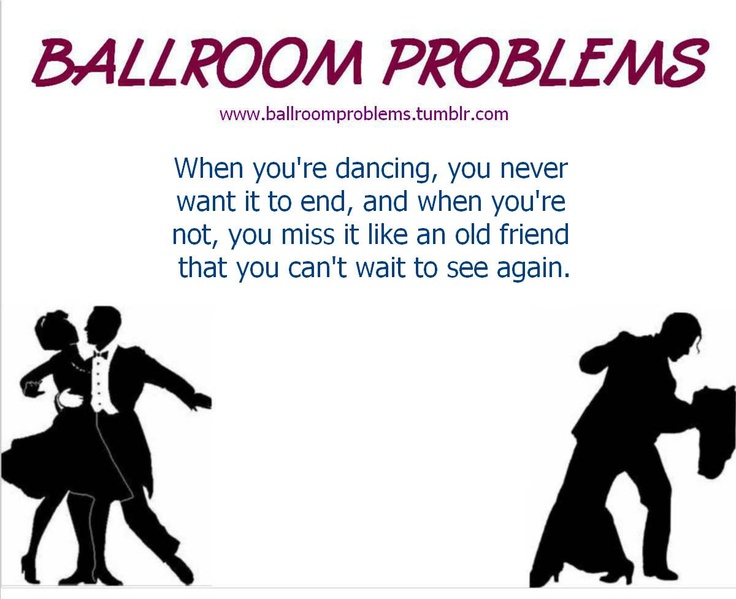 His refusal accentuates the shame and the fear of being used and abandoned felt by the borderline partner. Lachkar talks about a “dance” in which the narcissist’s emotional withdrawal and the borderline’s need of emotional upheavals come from childhood attachment problems.
His refusal accentuates the shame and the fear of being used and abandoned felt by the borderline partner. Lachkar talks about a “dance” in which the narcissist’s emotional withdrawal and the borderline’s need of emotional upheavals come from childhood attachment problems.
Links thinks that the couple must find a new balance during treatment. For example, a dependent can keep fulfilling the need of admiration felt by his narcissistic partner, but must get love and support in return. Or, in a narcissist-borderline dyad, the former must learn to not amplify the impulsivity and fear of abandonment of the latter.
Carlson believes that the treatment of these kinds of couples only works when focusing on the connections between the disorders. Only after understanding why a collision has happened the dysfunctional system can be taken into account in its totality.
It looks like every one of us searches for someone who completes us, responding to our deepest and intimate needs. However, there is a risk: each partner could feed the other’s dysfunctional characteristics, roleplaying a fixed part. Instead, it would be ideal to be like a puzzle, to build again and again creatively, mixing the pieces and finding new, unexpected configurations. A relationship in which our partner can protect us from our deepest fears, but also encourage us to get involved, always exploring different sides of ourselves.
However, there is a risk: each partner could feed the other’s dysfunctional characteristics, roleplaying a fixed part. Instead, it would be ideal to be like a puzzle, to build again and again creatively, mixing the pieces and finding new, unexpected configurations. A relationship in which our partner can protect us from our deepest fears, but also encourage us to get involved, always exploring different sides of ourselves.
Marta Di Grado
Psychologist, graduated in Clinical psychology at Turin University
Info, contacts and articles here
Bibliography
Carlson, J., &Sperry, L. (1997). The disordered couple. New York: Brunner-Routledge.
Kaslow, F.W. (1996). Handbook of relational diagnosis and dysfunctional family patterns. Oxford, England: John Wiley&Sons.
Lachkar, J. (1992). The narcissistic/borderline couple: A psychoanalytic perspective on marital treatment.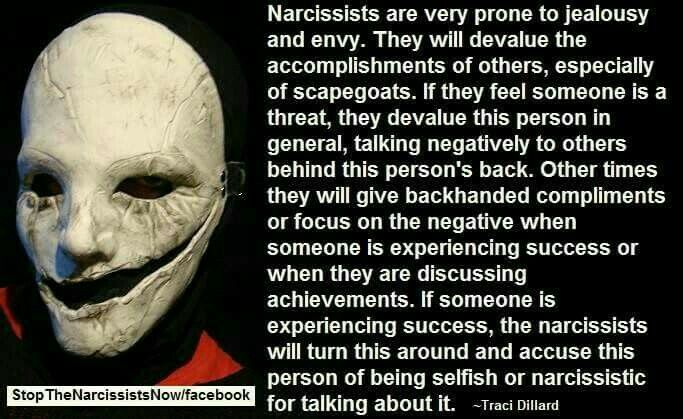 New York: Brunner-Routledge.
New York: Brunner-Routledge.
Links, P.S., &Stockwell, M. (2001). Is couplet herapy indicated for borderline personality disorder? American Journal of Psychotherapy, 55, 491-506.
Monguzzi, F. (2006). La coppia come paziente. Milano: Franco Angeli.
Murray, B. (2004). Mixing oil and water: Psychologists often find that opposites attract in couples with personality disorders. Monitor on Psychology Vol. 35 No. 3.
Solomon, M.F. (1992). Narcissism and intimacy: Love and marriage in an age of confusion. New York: W.W. Norton.
The Narcissist – Borderline Attachment — Courtney Hamlin Counseling
Opposites attract usually when there are personality disorders involved. Why is this? Because the disorders complement each other in an intricate dance. Each individual has a broken sense of self that complements the other in ways that healthy selves cannot fulfill. The unmet needs of one individual, fit perfectly with the unmet needs of the other. Each envies the part of the other that he or she does not understand or has disowned about self.
Each envies the part of the other that he or she does not understand or has disowned about self.
For the purpose of this article, I will use the term “personality disorders” to describe the conditions I discuss. However, I want to point out that most personality disorders stem from early childhood attachment trauma, and complex trauma. I do not like to label my patients with these terms, nor do I think there is a benefit in calling someone “a Borderline” or “a Narcissist.” For the purpose of describing the relational pattern I wish to discuss in this article, however, I have chosen to use these terms.
Individuals with personality disorders will seek to compensate his or her own deficiencies by another’s characteristics. Each partner sees the other person as “their other half.” However, that half is one they have cut or split in themselves, so they’re essentially attracted to the thing they’ve rejected, or have a negative attitude toward. This happens in healthy relationships too, but is much more common in those struggling with personality disorders. What exacerbates the situation, is that each partner stirs up an unconscious, unresolved part of the other. Usually both partners are developmentally arrested.
What exacerbates the situation, is that each partner stirs up an unconscious, unresolved part of the other. Usually both partners are developmentally arrested.
As I have stated, for the purpose of this article, I will use the term “Borderline” and the term “Narcissist” to characterize individuals suffering from both Narcissistic Personality Disorder and Borderline Personality Disorder. The pairing I would like to discuss is that of the Narcissistic/Borderline Personality couple. The Narcissist and Borderline are both fundamentally missing a core sense of self. Underlying their relational pattern and dynamic is both of their early attachment wounds. The Narcissist’s need for withdrawal and the Borderline’s emotional reactivity and fear of abandonment, intensifies as each worsens. Let’s take a moment to define each personality disorder. I would like to do so using a Psychodynamic lens.
According to the Psychodynamic Diagnostic Manual (PDM), Individuals with Borderline Personality Disorder tend to see their own unacceptable feelings or impulses in other people instead of him or herself.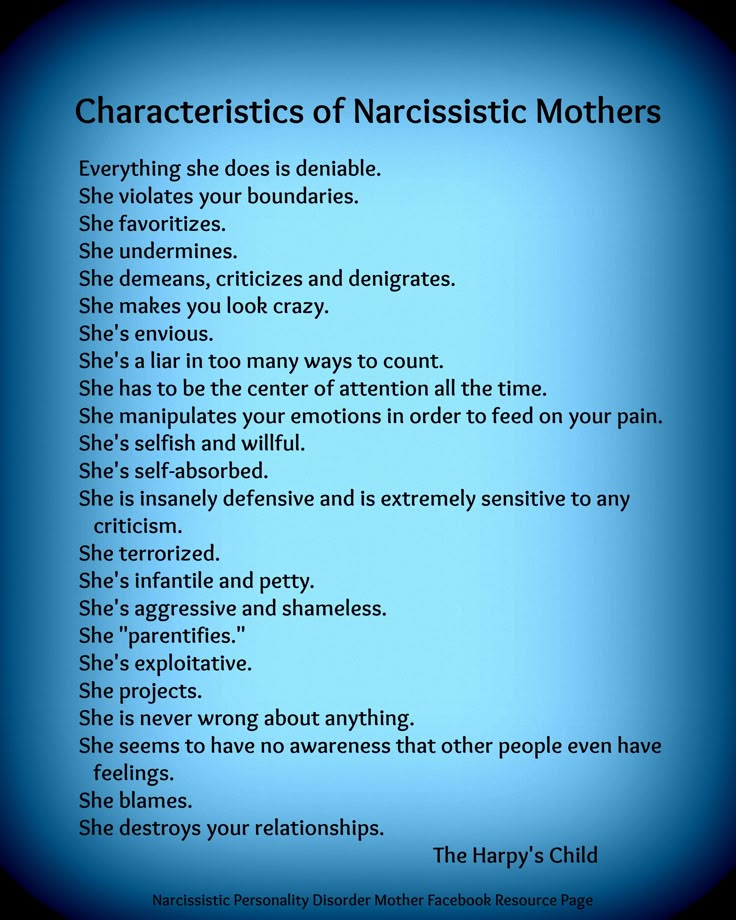 The individual will tend to express contradictory feelings or beliefs without being disturbed by the inconsistency, and will tend to idealize others in unrealistic ways, and then devalue them shortly thereafter. Often, conflict or animosity is stirred up by the Borderline between other people, and he/she manages to elicit in others, feelings similar to those he/she is experiencing (e.g. when angry, acts in ways to provoke anger in others). The Borderline has an internal sense of instability, and emotional lability, and has difficulty with affect and emotion regulation.
The individual will tend to express contradictory feelings or beliefs without being disturbed by the inconsistency, and will tend to idealize others in unrealistic ways, and then devalue them shortly thereafter. Often, conflict or animosity is stirred up by the Borderline between other people, and he/she manages to elicit in others, feelings similar to those he/she is experiencing (e.g. when angry, acts in ways to provoke anger in others). The Borderline has an internal sense of instability, and emotional lability, and has difficulty with affect and emotion regulation.
Underneath, he or she lacks a stable sense of self, and feelings about self, seem unstable and ever-changing. The individual is also prone to feelings of profound emptiness, and is often unable to settle into life roles (e.g. career, occupation, lifestyle, etc.). Someone with Borderline Personality ultimately has a grave fear of abandonment, and his or her emotions will change rapidly and unpredictably.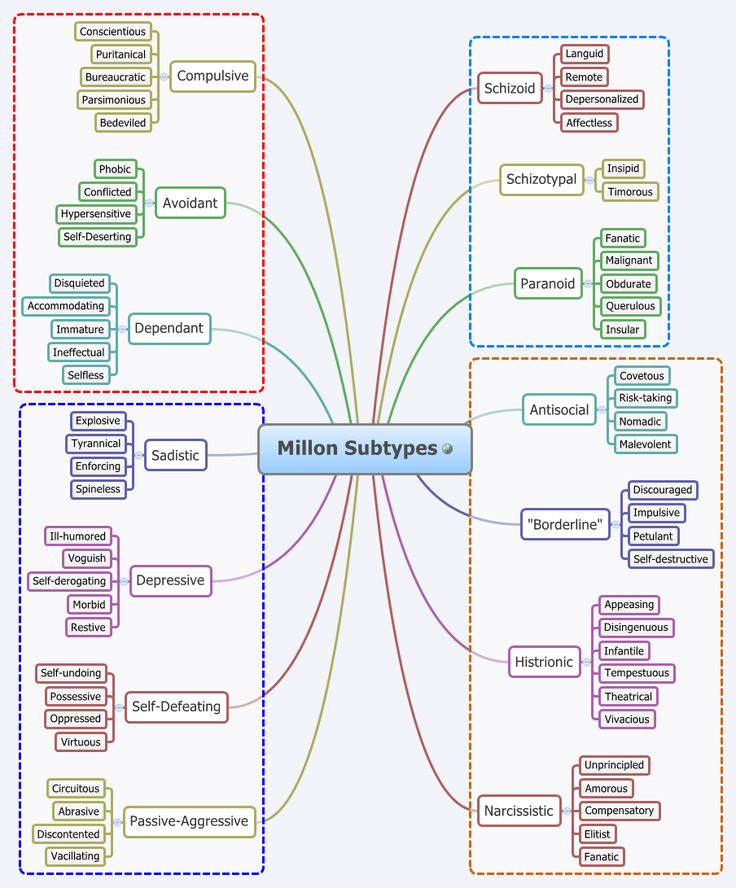 His or her relationships tend to be unstable and chaotic. The Borderline personality often has marked periods of anxiety or depression, and has vulnerability to substance abuse and other addictive behaviors. Those with Borderline Personality often experience projective identification, whereby he or she fails to recognize troubling aspects of one’s own personality, but feels absolutely certain that another person has those undesirable qualities and treats that person accordingly.
His or her relationships tend to be unstable and chaotic. The Borderline personality often has marked periods of anxiety or depression, and has vulnerability to substance abuse and other addictive behaviors. Those with Borderline Personality often experience projective identification, whereby he or she fails to recognize troubling aspects of one’s own personality, but feels absolutely certain that another person has those undesirable qualities and treats that person accordingly.
The Narcissistic Personality disordered individual on the other hand, also has an unstable sense of self, but overcompensates with a lack of empathy, self-aggrandizement, a pattern of grandiosity, need for admiration, and a lack of empathy for others. Narcissism refers to the fact that these individuals live their lives organized around maintaining their self-esteem by getting affirmation from external sources outside themselves. Narcissism can be normal, and all of us are narcissistically wounded in some way. However, it is when an individual becomes so obsessed with gaining approval, and has such extreme sensitivity to criticism, that it tends to be more pathological. Preoccupied with how they appear to others, “narcissistically organized people may privately feel fraudulent and loveless” (Psychoanalytic Diagnosis, p. 177). Narcissists, like Borderlines, tend to both idealize and then devalue others. “Despite the importance of other people to the equilibrium of the Narcissistic person, his or her consuming need for reassurance about self-worth leaves no energy for others except in their function as self-objects and narcissistic extensions” (p. 183).
However, it is when an individual becomes so obsessed with gaining approval, and has such extreme sensitivity to criticism, that it tends to be more pathological. Preoccupied with how they appear to others, “narcissistically organized people may privately feel fraudulent and loveless” (Psychoanalytic Diagnosis, p. 177). Narcissists, like Borderlines, tend to both idealize and then devalue others. “Despite the importance of other people to the equilibrium of the Narcissistic person, his or her consuming need for reassurance about self-worth leaves no energy for others except in their function as self-objects and narcissistic extensions” (p. 183).
So, what exactly happens in the dance between the Narcissist and the Borderline?
The Borderline views romantic attraction as reflecting an absolute view of the other as all good when conscious needs are being met, and all bad when they are not. Naturally, no partner can sustain this idealization. Furthermore, the Borderline individual’s tendency to project unacceptable aspects of their own character onto those around them will eventually shatter the perfect image they have of the Narcissistic partner, whom they then devalue and attack.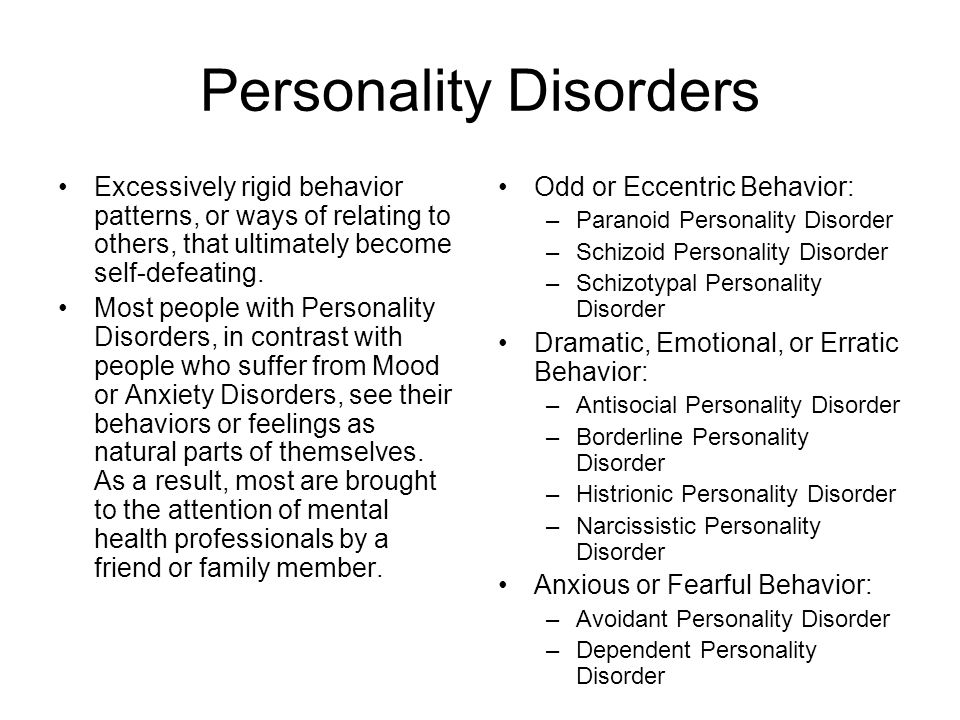 If their partner has a Narcissistic personality structure, this devaluation is as traumatic as the self-object failures of childhood, and causes intense pain. The Narcissistic individual may react with rage or withdrawal, which then triggers the Borderline partner’s abandonment fears. The Borderline feels abandoned, anxious, and emotionally deregulated, and the pattern begins all over again, as the Borderline’s anxiety triggers the Narcissists wounds and desire to withdraw. Both individuals unconsciously and consciously use manipulation and control of others to meet their own emotional needs.
If their partner has a Narcissistic personality structure, this devaluation is as traumatic as the self-object failures of childhood, and causes intense pain. The Narcissistic individual may react with rage or withdrawal, which then triggers the Borderline partner’s abandonment fears. The Borderline feels abandoned, anxious, and emotionally deregulated, and the pattern begins all over again, as the Borderline’s anxiety triggers the Narcissists wounds and desire to withdraw. Both individuals unconsciously and consciously use manipulation and control of others to meet their own emotional needs.
Whole object relations mean an individual is able to see someone as not simply all good or all bad. Both Narcissists and those with Borderline Personality disorder struggle with this. Each have an equally hard time holding the capacity to simultaneously see both the good and bad qualities of a person, and accept that both exist. They also struggle with “object constancy” whereby they are still able to see an individual in a positive light when hurt by the individual.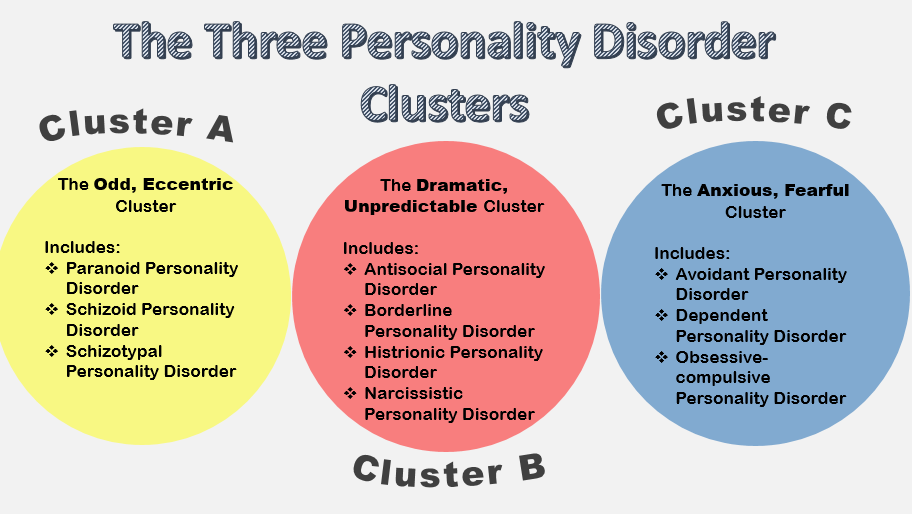 Someone who has solid object constancy, is able to maintain one’s positive feelings for someone while one is feeling hurt, disappointed, frustrated, or angry with the person.
Someone who has solid object constancy, is able to maintain one’s positive feelings for someone while one is feeling hurt, disappointed, frustrated, or angry with the person.
According to Elinor Greenberg, PhD, “Borderline and Narcissistic individuals often fall in love because they are at approximately the same level with regard to their “Intimacy Skills.” They both are likely to be in the early stages of learning how to successfully maintain intimate relationships. In the beginning, everything may seem blissful because they both share the capacity for making fast, intense romantic attachments without looking very closely at the other person’s real personality. They are both likely to believe that they will get exactly what they have been longing for from their new romantic partner. Each sees the other as a dream come true.”
Unfortunately, as the relationship progresses, each individual lack of “whole object relations” and “object constancy” make their relationship emotionally volatile and extremely unstable.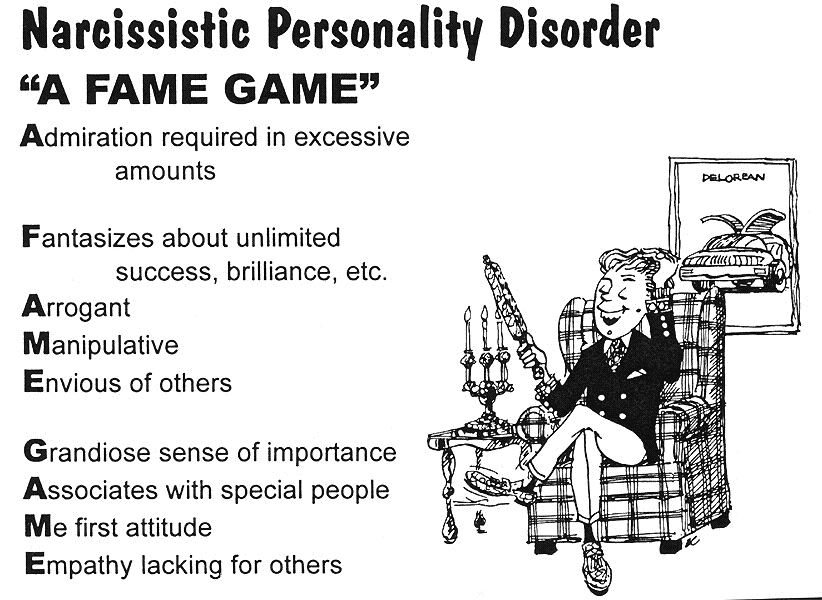
Anatomy of Borderline Personality Disorder - Femina_Vita — LiveJournal
The quality of the translation is not very good, but the article is interesting.
Original: http://gettinbetter.com/anatomy.html
Shari Schreiber
When Looks Can Kill
Anatomy of People with Borderline Personality Disorder (BPD)
She was once a little girl with little curls, right above her forehead. When she was good she was very, very good - but when she was bad she was terrifying.
My other articles on borderline personality disorder talk about elements of borderline that seduce you and keep you trapped despite their emotional exercises of push/pull, devastating go/come cycles, and confusing crazy behavior. This article reveals how the changeable and frightening dark side of this personality, which imprisoned you in its spell and does not let go, but also the main cause of these problems. This article provides a comprehensive list of features/signs that can help you determine if you are related to someone with BPD - or it can serve as a self-diagnosis tool.
Despite the fact that many BPD people have a stunning appearance, not all borderline people are beautiful or beautiful - but this does not make them less seductive or cruel. It is much easier for a good looking BPD man or woman to find constant sources of narcissistic fueling through suitors and courtship attempts, and until that ego fuel is no longer available, they will not consider psychological treatment.
I am often asked - can border guards commit murder? The answer is yes, depending on how severe their pathology is. They are capable of expressing unresolved fears (from childhood) by causing physical harm to anyone close - including a child or partner. They lack the empathy and impulse control that allows these violent acts to happen, and our prisons are full of border guards who have killed in a fit of rage.
While recovering from these toxic and dangerous relationships, many men have described the frightening "demonic" influence that seems to live inside their loved one when she is caught lying, manipulating, or betraying, or doing some sort of transgression (petty) with her side, provokes the most frightening change in her facial expression. Many described "as if sparks were coming out of her eyes" or "it was such a cold and ugly mask" that came out and they couldn't recognize the woman they loved so deeply. If looks could kill, they believed they would be dead after one of those episodes.
Many described "as if sparks were coming out of her eyes" or "it was such a cold and ugly mask" that came out and they couldn't recognize the woman they loved so deeply. If looks could kill, they believed they would be dead after one of those episodes.
When love is just a word
If you have ever been involved in a relationship with a person with borderline personality disorder, you have suffered tremendous confusion. A huge discrepancy between words and individual actions made you go around in circles and try to understand at least a little the meaning of it all. Should you trust your loved one when he/she states something like "I love you more than anything in the world and all I want is your happiness" or should you accept their destructive, degrading behavior as evidence that these statements are not actually true? You are reluctant to question their emotional health, their normality, because at that moment they love you - but an hour or so later they flirt behind your back or want to break up with you!
In addition, the border guards may make statements to you about the need to break off the relationship - but after your agreement or confirmation that it might be worth it, they accuse you of wanting to break up! I had this with a client with borderline personality disorder who was interested in my help. After only two sessions (which went very well) she called and said she didn't feel comfortable working with me. When I clarified the reasons for the doubts, in particular, in what ways my methods might not suit her (the reason is her resistance to treatment and even unwillingness to consider the option of changing towards a healthier psyche), she accused me of wanting to stop providing services to her! It was her projection; she needed to see me as the "bad guy" leaving her so that she could validate her belief "no one can help me/everyone leaves", she was able to find something to blame me, as well as her previous therapist.
After only two sessions (which went very well) she called and said she didn't feel comfortable working with me. When I clarified the reasons for the doubts, in particular, in what ways my methods might not suit her (the reason is her resistance to treatment and even unwillingness to consider the option of changing towards a healthier psyche), she accused me of wanting to stop providing services to her! It was her projection; she needed to see me as the "bad guy" leaving her so that she could validate her belief "no one can help me/everyone leaves", she was able to find something to blame me, as well as her previous therapist.
You probably went through this in your own "dance" with the borderline, but didn't take it personally or tried to convince them that they created this unpleasant situation. This is their cognitive distortion (distorted perception) in action and you cannot change it. Many frontiers who call me looking for a "cure" refuse after they learn that emotional development is part of the process. Development brings change, and change scares them. Therefore, they remain unhappy seekers of something that they cannot provide for themselves and do not really want.
Development brings change, and change scares them. Therefore, they remain unhappy seekers of something that they cannot provide for themselves and do not really want.
The border guards are extremely insecure. They express their conflicting feelings and fears around being attached to anyone who is close to them - even the therapist they have sought help from. A lasting/effective therapeutic effect breaks through their defenses and makes them want to retreat. They need constant reassurance that you will not stop treating them, but they will experience this connection in order to understand how far they can go with constant last-minute messages that they want to reschedule, undermining the therapy process (to prevent emotional development ), ignoring helpful tips, etc.
Borderline associates the word "love" with possible abandonment. You want to trust them - but most borderline pathological liars; it just became part of their plan of salvation from childhood. They can easily hide their sexual and love affairs from their partners/spouses, and if you are foolish enough to think it won't happen to you, think again!
In the 1964 film My Fair Lady, Rex Harrison's character sings his sad song: "Why can't women be more like men? Men are so honest and direct, eternally noble and historically just.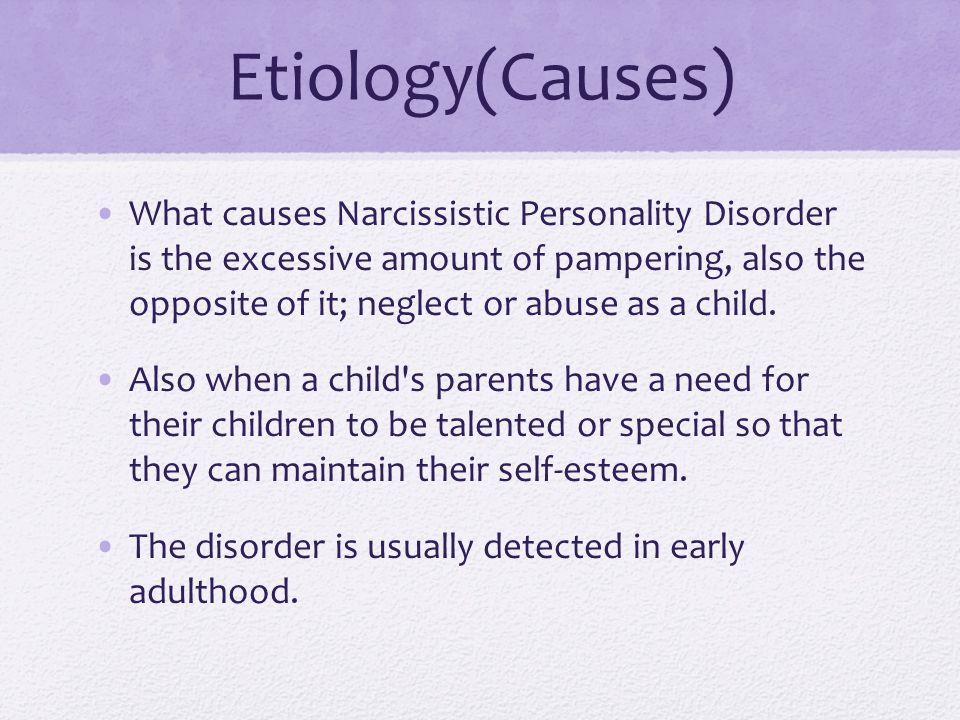 " The truth is that borderlines are more like men - at least in the beginning of a relationship. They provide a comfortable/easy sex life (and what man doesn't dream about this all his adult life?). There are facets of borderline personality that will make you feel like you're with that one person. She is open, direct, everything goes so easily with her, she is so charming and all this in one favorite bottle. She approves of everything you do - it's so wonderful that this wonderful creature is so passionate about you.
" The truth is that borderlines are more like men - at least in the beginning of a relationship. They provide a comfortable/easy sex life (and what man doesn't dream about this all his adult life?). There are facets of borderline personality that will make you feel like you're with that one person. She is open, direct, everything goes so easily with her, she is so charming and all this in one favorite bottle. She approves of everything you do - it's so wonderful that this wonderful creature is so passionate about you.
Of course it's the honeymoon of your relationship that serves as your excuse/review for her debilitating, overwhelming, violent behavior from the moment you've become completely by her side, and you can't even think of breaking free from the trauma that you get being with her. You lose your guard when she says that "let's try - there is nothing to be afraid of." You want to believe in it - and believe. I mean, who would refuse such a beautiful creature who wants to spend his days next to you.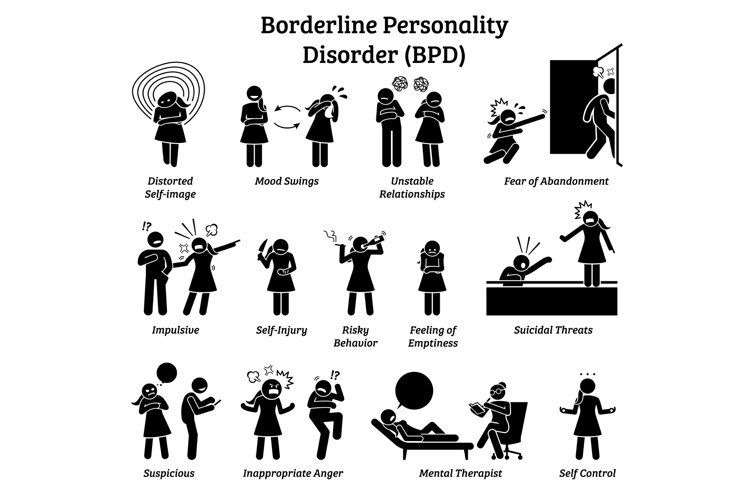 The problem is that the number of bad/crazy episodes soon starts to increase and it starts to poison your life. You are on the hook - and there is no turning back, despite such emotional outbursts as leaving / returning, pushing / pulling, love / hate you and the like. I have a favorite movie - "500 Days of Summer", which gives an idea of your desire for emotional comfort and stability in your relationship with the borderline, but you never get it.
The problem is that the number of bad/crazy episodes soon starts to increase and it starts to poison your life. You are on the hook - and there is no turning back, despite such emotional outbursts as leaving / returning, pushing / pulling, love / hate you and the like. I have a favorite movie - "500 Days of Summer", which gives an idea of your desire for emotional comfort and stability in your relationship with the borderline, but you never get it.
You yearn with all your heart for this delightful state of the beginning of your relationship, and I know how much you want it back. It's hard to give up this fantasy - but you have to. The truth is that there may be times when you think it's back, but it will never be the same as it was in the beginning - because you're already seduced. If this is not to be pursued, pursued, then it is of no value to the frontier, which is why many young people are abandoned immediately after they have abandoned their wife and family. It doesn't matter what she says in her defense, once you become "her", she no longer wants you (sexually or otherwise).
Similar to a well-fed, contented domestic cat - she will only chase a mouse for fun. Once the mouse is caught and is smart enough to pretend to be dead, the pussy loses interest and leaves. If the mouse struggles to free itself from the cat's claws, the cat grabs harder and accidentally kills its new toy. This is exactly what happens in your "dance" with the borderline. When you are available, he/she is not intrigued or interested in you.
Border guards have great difficulty trusting anyone. This problem has been left over from immaturity and early childhood due to poor parental care, so don't take it personally for lack of trust in you! You cannot make this person trust you, no matter how dependent or loving you are. This problem existed before you came along, so don't assume that you are responsible for it.
Initially, the borderline is a reflection of everything you've always wanted to believe about yourself. Later in the relationship, they reflect how you really feel about yourself deep inside, behind your status or signs of your success (fancy cars/houses, your outstanding talents in bed, your thriving business, your well-shaped body, etc. ) . You keep trying to recapture that first picture of yourself (at least in her eyes), but it's futile.
) . You keep trying to recapture that first picture of yourself (at least in her eyes), but it's futile.
Borderline make you feel responsible for their deceitful and manipulative behavior; they may make you believe that once you marry them, they will be devoted only to you and life will be wonderful - but don't believe it! The truth is that the closer you get to a person with borderline personality disorder, the more they become intimidated and repulsed by you. The reason for this paradox is their fears of attachment to another person.
They regulate extreme resentment if you ask a question about their real motives or even just imply that their actions are far from straightforward / honest - but this is their defense against the inability to be perfect, this inability causes toxic (internal) shame.
You probably haven't experienced enough true love in your lifetime, so these conflicting signals can be very confusing. The initial stages of a relationship with the Borderline are uplifting and it is unlikely you have experienced this before. You begin to feel that you have found what you need, what you have been looking for all your life. So when she starts pushing you away, finding flaws, you think "this is a temporary problem, I'll fix it or wait until it dries up. Of course, she really loves me, it must just be she misunderstood me or a little misunderstanding in communication."
Before you know it, the desire to solve this problem becomes the center of your world, and you strive to solve it at all costs, to fix it. Even if you're not sure if you've made a mistake, your partner's reaction is intense enough/inconsistent enough to suggest that you're the one to blame for these problems.
No matter how hard you try to solve this dilemma, your loved one has their own way of looking at it, and continues to feel the need to blame you for these difficulties. They will never be able to look at the problem from your side, nor will they accept your explanation of what you think is actually going on. They start using things about you, your personality, that aren't true, and you start defending yourself in the middle of trying to fix the root cause of the conflict. Now you have completely lost, and the light at the end of the tunnel has gone out. Simply put, this little speed bump has turned into a huge obstacle for you - and to top it all off, your character in this game is defeated.
As a child you learned to adapt and you used to always put the other's needs/feelings first, you may find yourself apologizing for wrongdoings you didn't commit in order to restore harmony and peace in that relationship. God knows, your partner won't admit his mistakes - and you know that days or even weeks may pass before he/she stops punishing you with his detachment from you, and this cold war will finally end (not for long anyway). You've tried to be smarter and ironed out those conflicts, but have you ever done that to you - or is it just up to you to do the right thing?
Everyone who comes to me for help to recover from this relationship has been mired in guilt and shame. It doesn't feel like that after a breakup, and you just can't walk away - not with a shattered ego, anyway. You are hurt and in pain - and the worst part is that you are beating yourself up for it! A long-term belief might be something like "I feel bad about this relationship, it must be my fault," but that's a false assumption you acquired as a child.
What does love have to do with this?
Love is an abstract concept for someone with borderline personality disorder - and is associated with pain. The strong desire for love of the Borderline is felt as dramatic, painful feelings that are confused with emotions towards an inattentive / unavailable parent in childhood, which are caused by non-reciprocal (or unrequited) love (maybe true for you too?)
Borderline bring with them a huge toxic shame from never feeling worthy of love in early childhood. They lived with the feeling of having to earn their parent's love (giving expensive gifts, visiting even if they don't want to, etc.) in order to earn approval and acceptance. They also did it to you. Every time they were charming, kind and seductive - it was done because of an inner need for recognition - and this has nothing to do with you.
The paradoxical nature of the borderline is difficult to understand, as their reactions are often the opposite of how you think someone should react, and this confuses you. For example, the closer you get to him/her, the more they move away. In healthy people, love and trust grow over time, and the intimate connection deepens over time. With the borderline, once they feel safe and good, the doubts of being abandoned are aroused, the fears of attachment are right in front of them - and they push you away. Their survival depends on it, because for them to love means that devastating pain will inevitably follow. You cannot change it.
The deep need of the borderline for love does not disappear, but when you feed it, the dramatic feelings associated with the desire/longing for this love evaporate! Infatuation exalts, but it disappears. Love is a stable feeling - and therefore unacceptable for the borderline.
By analogy, you may wish for your favorite food. You have to satisfy that need, that appetite, and you don't want anything else. After you have eaten, your need is satisfied and you are satisfied. Same with the borderline - once you satisfy their hunger for love, the feelings of "love" disappear. Feelings of love and pain have become intertwined for them, a person with borderline disorder is sure - if it doesn’t hurt, it’s probably not love - so people who are able to give them the love they really need are accepted as meaningless, punished or repelled. side. Have you experienced something similar before in your life?
This paradox is nothing but torment - if we are always looking for the approval of a parent or an older brother/sister for approval and love, but we do not get it - no matter how we try to invest in this relationship! This attachment can also be felt as a conclusion when our self-worth was dependent on a distorted reflection of dysfunctional others. It's like looking into a distorted mirror every day and coming to the conclusion that that reflection is real and accurate. The frontier simply reopens old wounds.
Much of your confusion and anguish may have started in childhood if you had an abusive or neglectful parent and the other parent told you that it was just "that's how he/she loves you". You were hurt by your mom or dad, and another relative may have comforted you by convincing you that the pain you were given was love can blur your understanding of this emotion, and spoil you for life! Should you doubt the parent or accept the lies you've been told? How could you have done this as a child?
Because you loved your parents unconditionally - despite the fact that they were the source of your pain, you learned to accept that "love" comes with pain - and this became the template for your relationship that all your adult close relationships were built on. . Borderlines are affected by similar factors, and this painful childhood experience often creates different addictions.
You might think that since both of you are damaged inside, why shouldn't this be the reason for a compatible, successful relationship? Have you ever seen two small children playing together - but when there is a quarrel between them, they do not have the ability to resolve conflicts, and adult intervention is required? Lack of adulthood means conflict escalates and there is simply no such thing as problem solving, which is why couples therapists thrive. You've experienced this with your borderline partner and either you've given up/yielded or you've left/run away until the tension subsides - only to come back and find that the conflict has passed without resolution, and the cycle repeats over and over again.
The prospect of love, loss and hate
It's not that the borderline never wanted love, but that they could never believe it. Partners who sometimes meet their needs for intimacy are less intimidating than those who can provide it on a consistent basis.
Trying to get someone's approval for being someone you're not to keep the borderline interested in you will never work. This is deeply rooted in your childhood, in which you learned to sacrifice huge chunks of yourself in order to get a little care, approval or affection from your loved ones. If you think that you can control this relationship, you are setting yourself up for serious pain. You can't win against a damaged/dysfunctioning person, but your ego definitely wants to keep trying - even against all odds.
To love the borderline always means walking on a tight rope, which is tied only to their emotional comfort, feelings or needs - and in these relationships there is not a single centimeter for yours! You will spend a lot of time and energy thinking about how to keep your balance on this thin rope so as not to fall and break your head - but this is a futile exercise. The truth is, the more you give to this person, the less they respect you. And how can they, if you cannot respect yourself enough to firmly defend your interests and desires?
Star Dance
I am sometimes approached by psychotherapists who need help with particularly difficult borderline patients/clients. Few have been able to take control of the therapeutic relationship with the borderline - intense drama, chaos and violence go their way during the sessions. During consultations, I train them to set very strong limits and boundaries, and get their control back. Angry, abusive border guards literally scream about the need to contain them. The therapist must understand that these patients need to be treated differently than others and protect themselves during the entire process - even if it means leaving the office for a few minutes during the appointment. Ultimately, there is no justification for violence - you cannot have a constructive dialogue with a three year old.
There may be concerns that borderline "homeless" individuals may harm themselves in response to solid, direct treatment, but the exact opposite is actually the case. As I mentioned in my other literature, the borderline is almost like someone with no skin to hold them in. As a good parent, you should give them a shell and nothing else. This is the only way that makes them feel cared for and safe. When husbands learn to do this with their borderline wives, their home life becomes much more bearable and even enjoyable.
Your star is emotionally a small child who lacks impulse control and boundaries. Don't believe me? Ask any filmmaker. Expect resistance, stand firm on your feet.
A small child cannot restrain his feelings for a long time, and emotional lack of control is a natural phase of development. They get very disappointed if you promise something you can't deliver - and they will hate you and get angry or pout when it doesn't work out "my way". Usually after a fairly short period their temperament changes and they giggle again and love you again - and if you've actually spent any time with a small child, you know how easy it is to cheer them up. Perhaps just enough candy!
Part of these subconscious processes is about their need to learn your limits and how far they can go with you before being punished. This stage is usually referred to as "two bad guys", but it goes on for a while - and at times you get so frustrated that you find yourself thinking "how do I get rid of this rascal / rascal". The Frontiers have not developed a shell of their own - and like a small child, they depend on you to create the rules to make them feel secure. They will constantly test these limits because they have not developed their own - and their lack of impulse control is what Sigmund Freud called the "Id (It)" or childlike impulses that determine their need for immediate gratification.
The child is guided exclusively by instinctive drives. He does not have the ability to control mood, empathy, developed thinking or a sense of distinguishing bad from good. Their needs are primitive/selfish because their survival depends on it. If adulthood has not been successfully developed, narcissism is usually the result. The emotionally undeveloped person constantly struggles with relationship difficulties, addictions, signs of personality disorder, low self-esteem, and low tolerance for the lure of instant gratification.
High-functioning frontiers in a psychotherapeutic society may develop strong clinical skills - but often retain eccentric push/pull actions in their personal relationships. Genuine friendships and close relationships with colleagues are often sabotaged when the other is seen as more gifted than them because their toxic shame is (inevitably) evoked.
Some material on the internet mentions "hoovering". I generally refrain from using hackneyed phrases associated with this disorder, but this particular one accurately describes the nature of the borderline in wanting / wanting you, once they realize that you are no longer available. This task is to pull you back into when that craving arises. The craving for you comes from the desire to bring you back, that's what this word covers. Once their appetite is satisfied, their interest in you disappears again - and this repeating cycle continues until one of you gets tired and loses health from it.
You probably want to escape from this toxic relationship, but you can't imagine "quitting" your borderline. Let's be honest: Frontier's troubles started long before you even showed up, you can't rewrite its history no matter how hard you try! You don't "leave" this person (her parents did), you just leave to start taking better care of yourself!
The Borderers failed to form strong bonds and trust during their childhood with their mothers. They did not receive enough attention, reflection and care in the early stages of life. Every child needs these key emotional nourishments to know they are loved and to build a solid sense of Self. Children who have grown up without these elements assume that this deficiency is their fault - they must be defective and unloved. If you have become a "people pleaser", this could be happening to you too! In fact, you've both struggled with similar internal issues, so it feels like her/his puzzle fits yours and vice versa.
Source http://narcissistic-abuse-in-russian.blogspot.com
Read the online book “Stop walking on eggshells. Living with Someone with Borderline Personality Disorder by Randy Kroeger et al., a book in the Self Psychologist series
| GENRES
BOOKS BY YEARS
|





